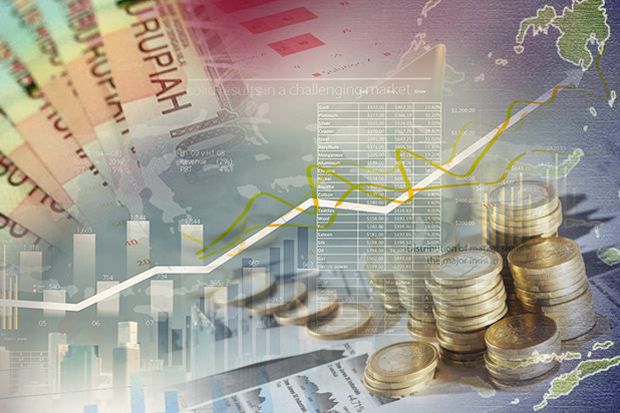The Government’s Economic Policy to Maintain Economic Stability is Appropriate
Economic stability is one of the main objectives of government economic policy in Indonesia. Throughout 2024, the economic policies implemented by the government have shown positive results in maintaining economic balance and growth. Several policies that have been taken include fiscal, monetary and structural measures to face global and domestic economic challenges.
This stability is necessary to ensure sustainable growth, reduce poverty, and improve community welfare. In this context, the Indonesian government has implemented various economic policies to maintain economic stability, including monetary, fiscal and structural reform policies.
Bank Indonesia, as the monetary authority, has a key role in maintaining economic stability through monetary policy. One policy that is often used is the adjustment of the reference interest rate. In a situation of high inflation, Bank Indonesia can increase interest rates to control inflation and maintain the rupiah exchange rate. Conversely, in conditions of economic slowdown, interest rates can be lowered to stimulate economic growth.
javascript:false
Economic transformation is a process of structural change in the economy that involves a shift from traditional sectors to more productive modern sectors. The Indonesian government’s economic transformation policy includes several important aspects such as economic digitalization, economic diversification, and improving the quality of human resources.
Coordinating Minister for Economic Affairs Airlangga Hartarto said that the government is preparing digitalization in the insurance sector to realize economic transformation. According to him, the massive development of digital technology is currently a challenge in itself for the insurance sector.
Digital transformation in insurance supported by artificial intelligence, machine learning , predictive analysis, mobile services, and live chat allows insurance companies to develop business sustainably.
According to Coordinating Minister Airlangga, overall, although challenges such as infrastructure gaps and cyber security problems still exist, the insurance industry in Indonesia remains ready to face significant digital transformation.
He assessed that the insurance sector has become one of the main contributors to gross domestic product (GDP) and has optimal potential. This is demonstrated by the performance of the insurance industry which continues to increase in line with national economic growth.
By mobilizing domestic savings, insurance allows reducing losses, increasing financial stability, and encouraging trade activities, so that insurance plays an important role in sustainable economic growth. Meanwhile, in achieving the vision of a Golden Indonesia 2045, economic transformation is one of the essential steps that the government needs to take to increase inclusive and sustainable economic growth.
Armed with the demographic bonus and international trust, opportunities to achieve the vision of a Golden Indonesia in 2045 are increasing and need to be optimized by the government.
The government is developing a Special Economic Zone (KEK) policy to encourage economic transformation by preparing an area that is provided with various ultimate facilities and conveniences , so that it can attract investment, increase Indonesia’s competitiveness, and create new centers of economic growth and create job opportunities. Currently, Indonesia has 22 (twenty two) SEZs consisting of 12 Industrial SEZs, 8 Tourism SEZs, and 2 other service themed SEZs.
SEZs have contributed significantly and have had a positive impact on the regional economy. One of them is proven by the Mandalika SEZ which shows a significant contribution to improving the economy of the NTB region through support for MSMEs, infrastructure growth and workforce absorption.
President Director of PT ITDC as the Mandalika KEK Development and Management Business Entity (BUPP), Ari Respati, said that his party is committed to continuing to innovate, improve services and create a supportive environment for business people, tourists and local communities, with the aim of making Mandalika KEK an icon superior Indonesian tourism that is known internationally and contributes positively to the local and national economy.
Apart from that, fiscal policy also supports the formation of a stable domestic economy. Minister of Finance, Sri Mulyani Indrawati said that fiscal policy must be a strong foundation for a sustainable development process towards a Golden Indonesia 2045. Various challenges and obstacles will continue to be faced by all nations in achieving their goals, including Indonesia.
With hard work and commitment to maintaining economic stability, reinforced by policy breakthroughs, economic growth is expected to be higher and of higher quality as the foundation for strong long-term growth. Growth in 2025 is estimated at 5.1% – 5.5%, supported by controlled inflation, strengthening natural resource downstreaming, development of the electric vehicle industry, and digitalization supported by improvements in the investment climate and quality of human resources.
The economic policies implemented by the Indonesian government to maintain economic stability have shown positive results. Steps to carry out economic transformation through diversification, digitalization and improving the quality of human resources are the right steps to ensure sustainable and inclusive economic growth. By continuing to adapt policies that are responsive to global challenges, Indonesia can strengthen its position in the world economy.
